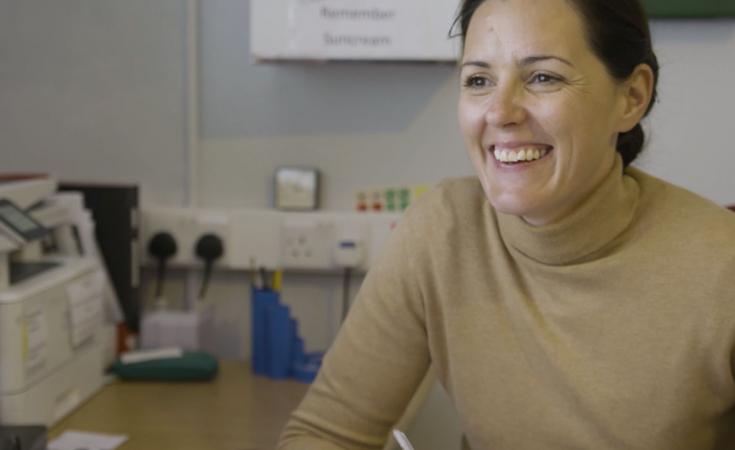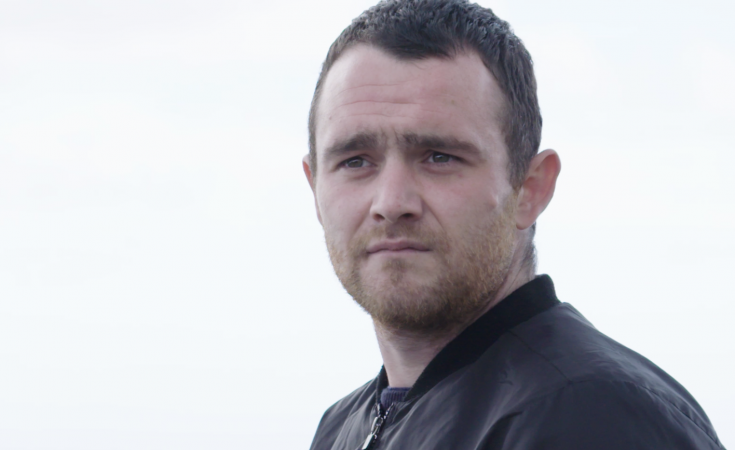Residential Care
Residential Care is where you live in a house with other young people in care and staff looks after you.
Things to know about Residential Care
The House
The house is like any other house, with a kitchen, TV room and bedrooms. There is an office where the staff does paperwork and stores files. Every young person has their own room and you can bring your own personal stuff. You will live in a residential home that’s best suited to you.
The Staff
The staff who work there are called Residential Care Workers but you call them by their name. The staff members work shifts, so they change most days but there is always at least one adult there at all times and always lots of people around to talk to.

Sinead talks about Residential Care
Listen to Sinead talk about residential care.
Your Keyworker
A staff member called a ‘keyworker’ will take special care of you. Your keyworker gets to know you really well and will help you settle in. They will arrange your medical appointments to make sure you are healthy and well. They are given money to buy you clothes and will make sure you get a small amount of pocket money every week.
Leaving the House and Sleepovers
You can’t leave the house without permission; you have to tell the staff where you are going and how long you will be gone for. You also need permission from your keyworker to go on a sleepover at a friend’s house. Sometimes you might need to have permission from your social worker and sometimes from your parents too. This is only because everyone wants to keep you safe and they need to know where you are going and who you will be with.
School
You still have to go to school.

Mark's Residential Care story
Listen to Mark's story and see how he got on in residential care.

My key worker taught me a lot about my family history and the reason I was in care.
Aoife, age 16, Galway
Meet a Child in Care Social Worker
Listen to Andrew talk about the work of a Child in Care Social Worker.

Your Social Worker
Your social worker and the people looking after you are responsible for you. Your parents will also have a say in your care. Your social worker visits as often as needed to make sure everything is going well. You can arrange to talk to or ask for a meeting with your social worker anytime.

Your Care Plan
A Care Plan is put together for every young person when they come into care. It is a record of all important decisions made about you while you are in care; where you will live and who you will live with, where you will go to school, where and when you will visit your parents, brothers and sisters (if it is safe to do so) - this is called ‘access’, how your social worker will help you and other important parts of your life e.g. your health.
Your Child in Care Review Meeting
This is a meeting when the people who care for you come together to talk with you about how you’re getting on and review your Care Plan. The people at the meeting might be your parents or other family members, social worker, social work team leader and residential staff. The meetings take place regularly and last for about one hour.
Privacy
Everyone does not have to know your story. However, your social worker or keyworker might have to pass on some things you say to other people. The staff in your residential home will also write down things about you and what you do each day in a book. This is called your ‘file or record’. Your file can only be read by people who need to know how you are doing e.g. your social worker or the staff working in your home.You can ask to read your file.

The staff in my residential home made it easy for me to settle in and made me feel like it was a my home.
Stephen, age 15, Cork
Check out the National Standards for Residential Care
The government has a set of standards about living in residential care. This means that the care you get has to reach a certain level. The standards are to make sure that you are kept safe and cared for properly when you are in residential care and that the people in your residential home listen to what you have to say.


Complaints and Feedback
You have the right to have your say and be listened to. If you want to make a complaint or give feedback - talk to your social worker or email, call, text or WhatsApp.


